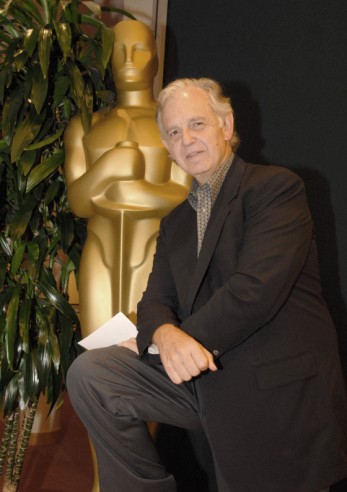In the category, “Something You Don’t See that Often,” the award goes to… composer Bruce Broughton!
In surprise move, the Academy of Motion Picture Arts and Sciences rescinded composer Bruce Broughton’s nomination for the song, Alone, Yet Not Alone, from the little seen film of the same name. The decision was prompted by the fact that Broughton, a former Governor of the Academy and current executive committee member of the music branch, had e-mailed some members to make them aware of his song and the film.

In part, the message read: “I’m dropping you a line to boldly direct your attention to entry #57,” Broughton wrote in his email, alluding to the track’s number on a DVD of contending music. “I’m sending this note only because it is extremely unlikely that this small, independent, faith-based film will be seen by any music branch member; it’s the only way I can think of to have anyone be aware of the song.”
Hollywood is well-known for publicity, and as Oscar time approaches, advertising goes into a hyper-drive of promotion for everyone connected to top-flight contenders.
According to Academy protocol, prospective nominations for song are numbered and compiled on a DVD without listing credits. “The idea,” Academy President Cheryl Boone Isaacs says, “is that people are voting solely for the song and not who wrote it.”
Sounds reasonable, doesn’t it?
In notifying, approximately 70 members of the Academy’s 240-member music branch, Broughton identified himself and broke the rule of anonymity.
“He exerted undue influence,” Isaacs says, “using information that only an academy insider would have.”
In an interview with The Los Angeles Times (Feb. 1), Broughton said that he was only attempting to draw attention to a little known film that lacks the same kind of promotional fire-power as more mainstream films. The composer maintained that he only sent the message to 70 people from his personal address book, not an Academy database.
” ‘They had previews and parties and huge promotion,’ Broughton said of the studio campaigns for Oscar-nominated songs from other films, which include box-office hits such as Disney’s Frozen and Universal Pictures’ Despicable Me 2. ‘We had no budget. There’s no Oscar campaign. All there is is this really stupid e-mail that went out to about 70 people saying, ‘Please look at my song.’ ”
Broughton is using the time-honored “False Necessity” rationalization: If it’s necessary, it’s ethical.
“Necessity is not an established fact,” ethicist Michael Josephson says, “but an interpretation.” In examining an issue, Josephson asks us to look at two aspects: the goal and the means.
“Is the ultimate Goal truly necessary? What would you do if you know you couldn’t get what you want? Would a disinterested outsider believe the goal was necessary? Would you do it if you knew your goal was a ‘want’ rather than a ‘need.’?
“Are the specific Means you are considering truly necessary to achieve the goal? What would you do if those means were unavailable? Would a disinterested outsider think the conduct is necessary to achieve the goal? Will the means jeopardize or change the nature of the goal?”
“I’m devastated,” Broughton said, adding: “I indulged in the simplest grass-roots campaign and it went against me when the song started getting attention. I got taken down by competition that had months of promotion and advertising behind them. I simply asked people to find the song and consider it.”
“No matter how well-intentioned the communication,” Isaacs says, “using one’s position as a former governor and current executive committee member to personally promote one’s own Oscar submission creates the appearance of an unfair advantage.”
Isaacs is right. Here’s what Broughton could have done: before sending out his e-mail, he could have checked with another Academy member; better yet, he should have checked with President Isaacs, herself. Whether his e-mail was to one or all 240-members of the music branch; whether it came from a database or his personal address book, he violated the principle of anonymity the music branch had agreed upon.
“The revocation was an unusually strong step for the Academy,” The New York Times wrote (Jan. 29). In 2010, when Nicolas Chartier, a producer of The Hurt Locker, was found to have improperly campaigned against a rival, Avatar, Mr. Chartier was barred from the Oscar ceremony. But his film remained qualified, and went on to win the best picture Oscar.”
So, is Broughton planning on attending the Oscar’s this year?
“There’s nothing in it for me,” he said. “Why would I do that? It’s like going to have dinner with your ex-girlfriend’s family.”
Maybe Broughton should consider some of the writings of another well-known musician, John Lennon: “Life is what happens to you while you’re busy making other plans.”
Comments










